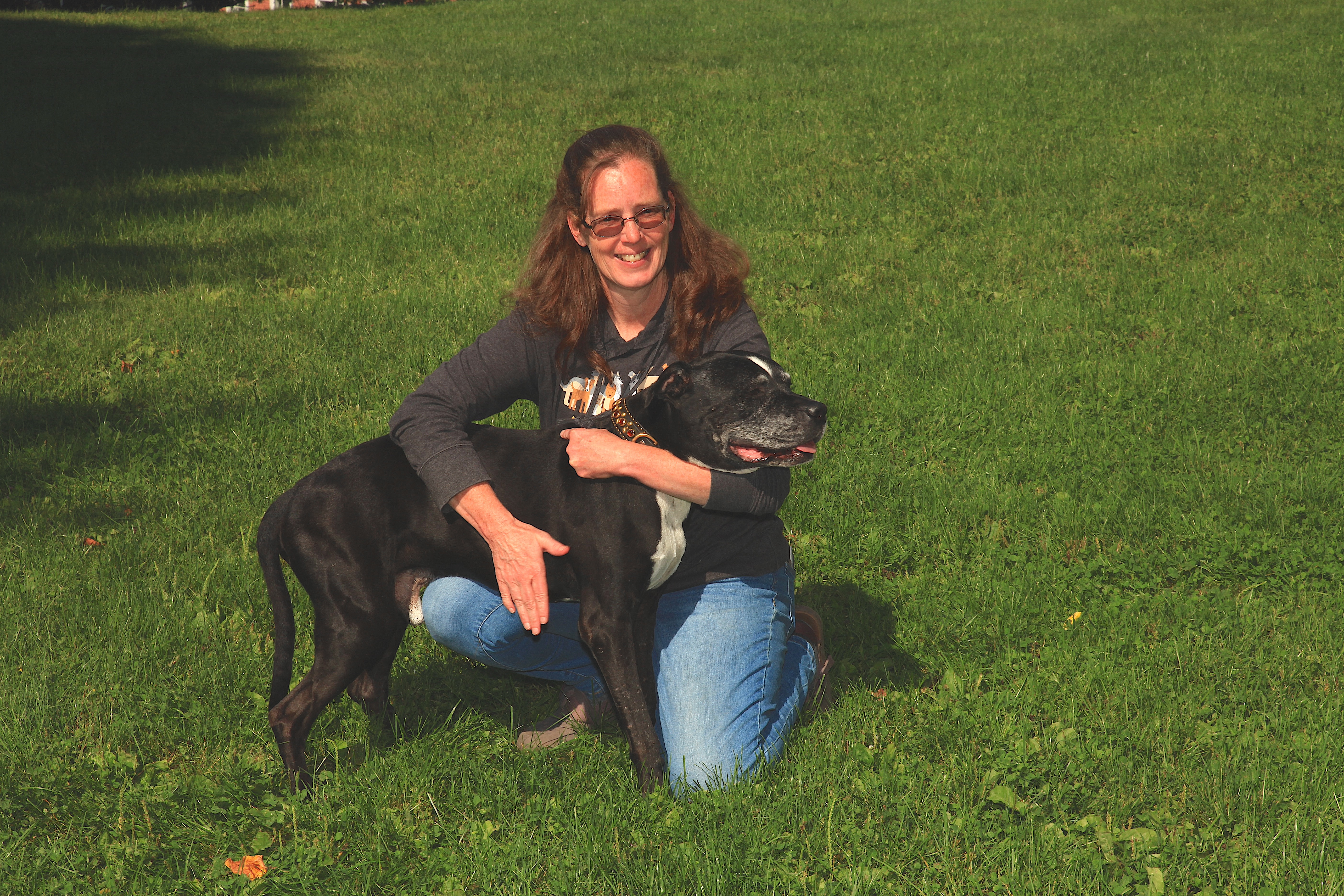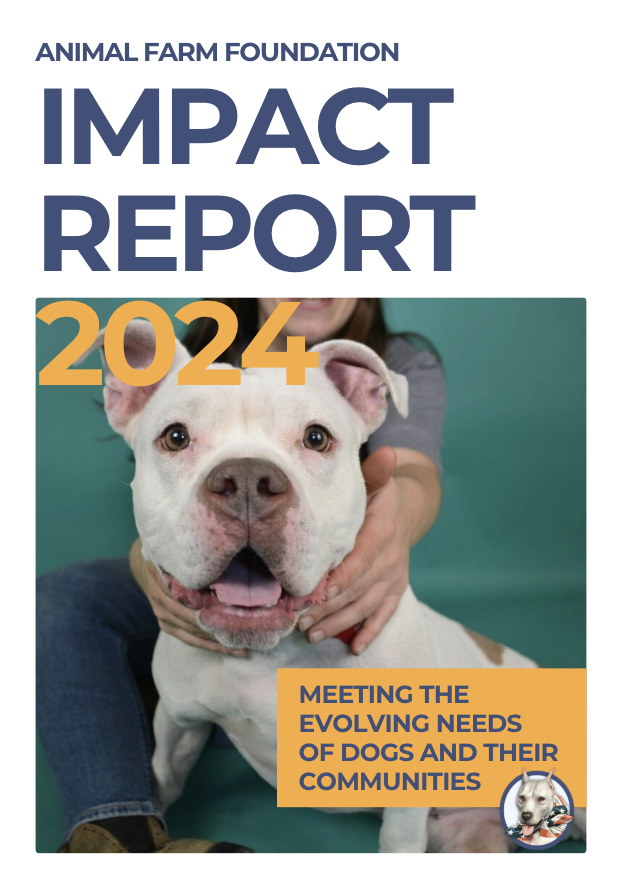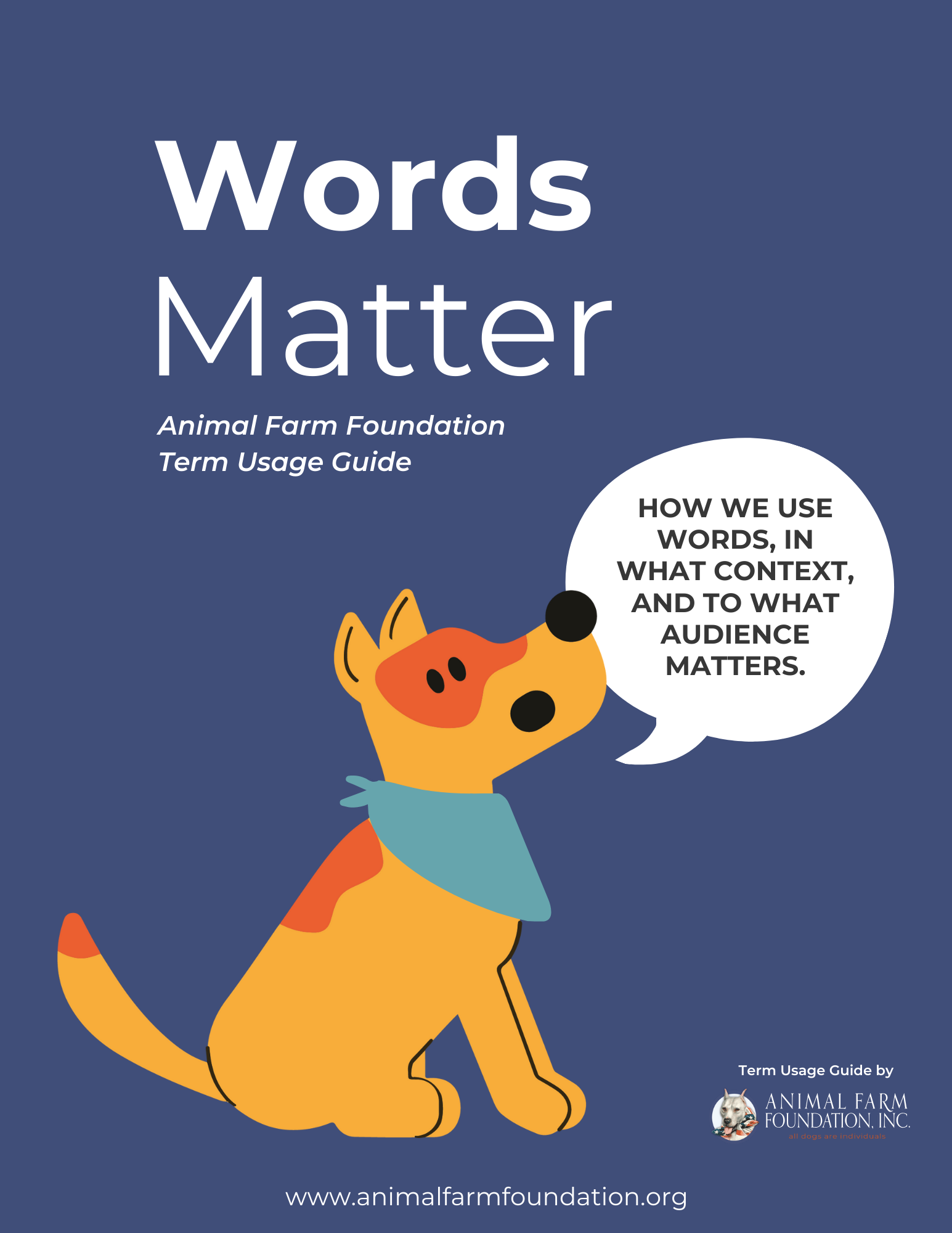At Animal Farm Foundation, we like science. We do love a good fairytale (because who doesn’t?), but simply because a story tugs at your heart, doesn’t make it true or helpful in moving society forward. In advocacy, you must always lead with the truth.
Unfortunately, many myths about “pit bull” dogs are so pervasive that many advocates believe them to be true and they use these stories as part of their outreach efforts.
A prime example of this is the myth that “pit bull” dogs have a higher tolerance for pain than other dogs.
One advocacy website writes:
“Sometimes presented as a negative trait, the fact that pitbulls [sic] have a high pain tolerance makes them exceptional family dogs. They easily (and happily) put up with the rough play of children without reacting.”
Not only is this statement factually incorrect, it feeds into the pro-BSL hysteria that “pit bull” dogs are uniquely different, dangerous, and therefore need to be regulated. It’s even shown up in court as justification for breed bans.

There is nothing unique about the neurological system of a “pit bull” dog.
They’re just dogs.


If this was a fact, we wouldn’t argue it. But, it’s not a fact. It’s a myth. There is nothing unique about the neurological system of a “pit bull” dog
All dogs, regardless of how they look or their genetic heritage, experience pain. How each individual dog responds to that pain will vary, but you cannot predict that response based on the dog’s physical appearance or heritage.
Tufts Veterinary Medicine Magazine addressed the “pit bull” dog high pain tolerance myth in their Winter 2013 issue:
“Pain medicine as a veterinary specialty is relatively new. As recently as a decade ago, most veterinarians assumed that animals didn’t feel pain, or at least experienced it differently than humans. Now all evidence points to the contrary. Research has shown that animals and humans have similar neural pathways for the development, conduction and modulation of pain, making it pretty likely that our pets experience pain in much same the way we do.”
The Myth Might Put a Dog’s Comfort and Care At Risk
The article goes on to say that even in people, pain is often undertreated. Michael Petty, president of the International Veterinary Academy, says:
“If we’re looking at practically half of the human population that’s in pain getting undertreated, I have to believe that over 95 percent of animals in [chronic] pain are not getting proper treatment.”
This means that a lot of pets are not getting the pain relief they desperately need. Part of this might be because of the “pit bull” dog high pain tolerance myth. While dogs can’t speak up for themselves in a way we can clearly understand, they do let us know inform us of things in a variety of ways, but we might completely miss these important signals if we’ve already written off pain as a problem our dogs might experience.
(For more on how pain may present in a dog’s body, please read the full article.)
(For more on how pain may present in a dog’s body, please read the full article.)


The High Pain Tolerance Myth Can Result in Negative Consequences for People and Pets
The myth implies:
- That parents can allow their children to inappropriately handle “pit bull” dogs in a rough manner. The experts on family dog safety tell us that this type of rough play leads to dog bites – no matter what the dog’s genetic heritage dog may be. To reduce dog bites and increase pet retention, children should always be taught to treat all dogs gently and respectfully.
- That dog owners should be alarmed if their “pit bull” dog does not “happily” accept rough play from children. If the dogs react, something must be wrong with them, right? Wrong. All dogs deserve to be handled respectfully and will have varying tolerance levels for physical play. There’s nothing wrong with dogs who prefers gentle play (or no play at all) with children.
- It suggests that “pit bull” dogs are biologically different than other dogs. For people that are afraid of “pit bull” dogs, the high pain tolerance myth suggests the dogs are uniquely capable of causing damage because they cannot be stopped by regular management techniques.
- It makes a convenient excuse for humans that wish to exploit them and/or abuse them. It should go without saying that we should never justify cruelty by suggesting the victims have a high tolerance for being abused.

There Is No Benefit to Focusing on Fiction Over Fact
There are many ways to promote the wonderful pet qualities and proper care of “pit bull” dogs without having to resort to perpetuating myths.
Now that we know better, we have an obligation to consider the way we communicate on behalf of the dogs and the information we’re sharing. Dogs are depending on us to stop adding to their problems by recycling old content that has no basis in science.
However, if you’d like to discuss the science of how dogs experience pain, here are some talking points:
- The perception of pain is unique to each individual, human or dog. Factors that affect each dog’s individual response to pain include age, gender, and health status. Individual situations also affect a dog’s reaction. If a dog is engaged in work or a sport, it can affect how they perceive pain in that moment (just like humans).
- Recognizing and determining the source of pain in dogs can be a challenge, especially since the early signs of pain can be subtle. One of the best ways to assess pain in any dog is to know what’s normal for them. Pay attention to your dog’s every day, regular behavior and habits, so that you’ll readily notice anything abnormal.
- There is nothing unique about the neurological system of a “pit bull” dog. All dogs, regardless of heritage, experience pain. How each dog responds to that pain will vary, but the response cannot be predicted by physical appearance or breed.
Advocacy should move society forward. To do so, we must advocate with facts and not myths. Learn more about better ways to advocate for all dogs and their families in the Community Advocates section of our website.






